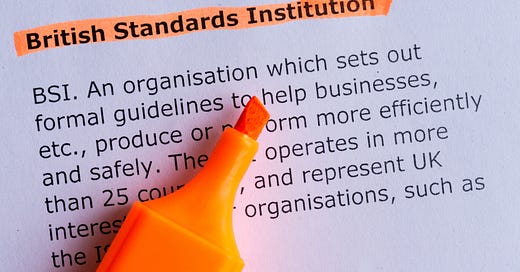The Process Safety Professional. Professional Standards (Part 10)
We are writing a book The Process Safety Professional. The current Table of Contents is available here. We are gradually releasing the contents of the book to paid subscribers. This is the tenth release. It is to do with Professional Standards. (Additional information is provided in the book Offshore Safety Management.)
Professional Standards
In general, process safety regulations do not provide much detailed guidance. There are at least two reasons for this. First, as we have seen, these regulations are mostly performance-based. They say to a company in the chemical or energy industries, “Do a good job — don’t have accidents.” They then say, “How you do a good job is up to you.”
The second reason for the lack of detail in the regulations is that the regulators cannot possibly know enough about the vast number of industries to develop detailed rules or guidance. They have to rely on the industry associations, and other professional bodies, to provide specific standards and guidance. The topic of industry and company standards is discussed in detail in Process Risk and Reliability Management. A few general comments are provided here.
The International Organization for Standardization defines standards as follows:
Documented agreements containing technical specifications or other precise criteria to be used consistently as rules, guidelines, or definitions of characteristics, to ensure that materials, products, processes and services are fit for their purposes.
ISO also states that standards are developed according to the following principles:
Consensus
The views of all interests are taken into account: manufacturers, vendors and users, consumer groups, testing laboratories, governments, engineering professions and research organizations.Industry-wide
Global solutions to satisfy industries and customers worldwide.Voluntary
International standardization is market-driven and therefore based on voluntary involvement of all interests in the market-place.
Keep reading with a 7-day free trial
Subscribe to Net Zero by 2050 to keep reading this post and get 7 days of free access to the full post archives.




